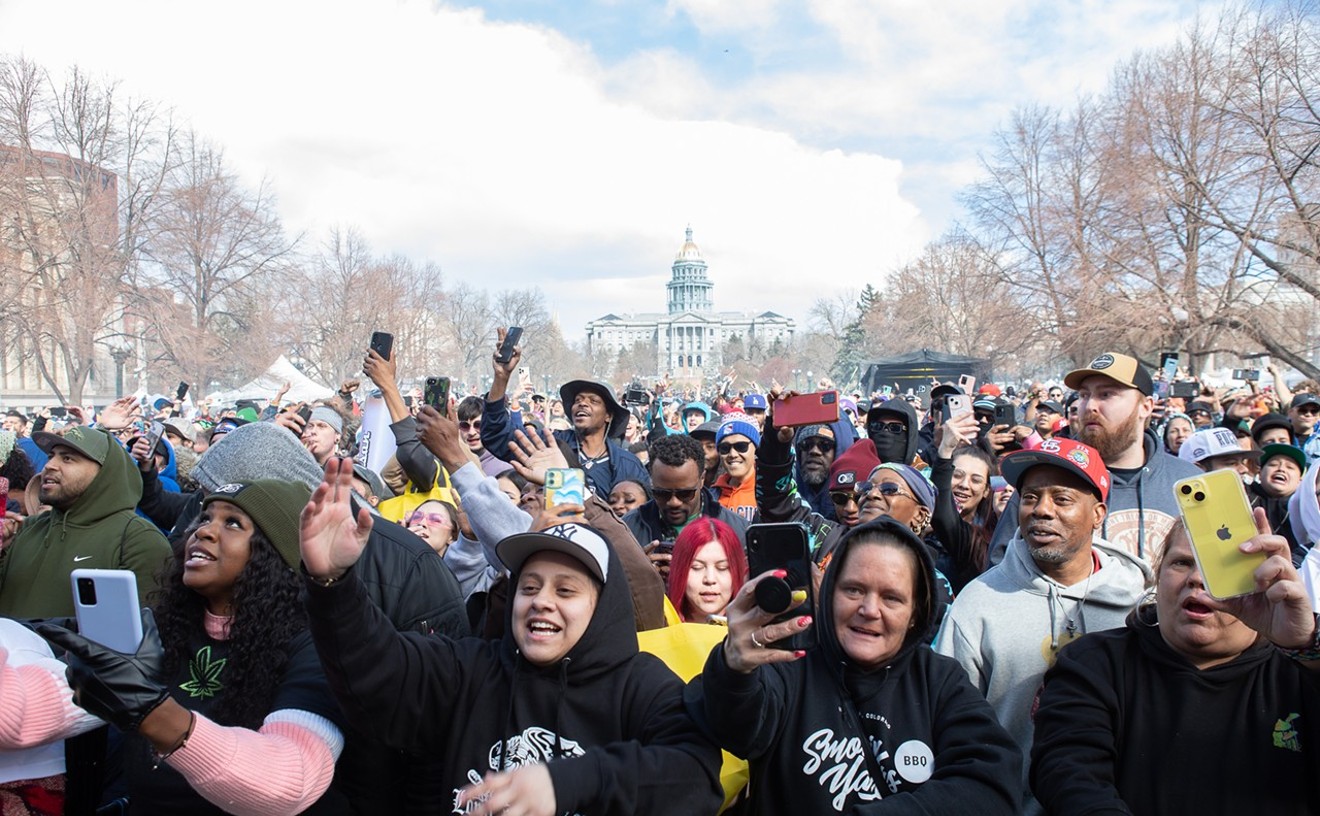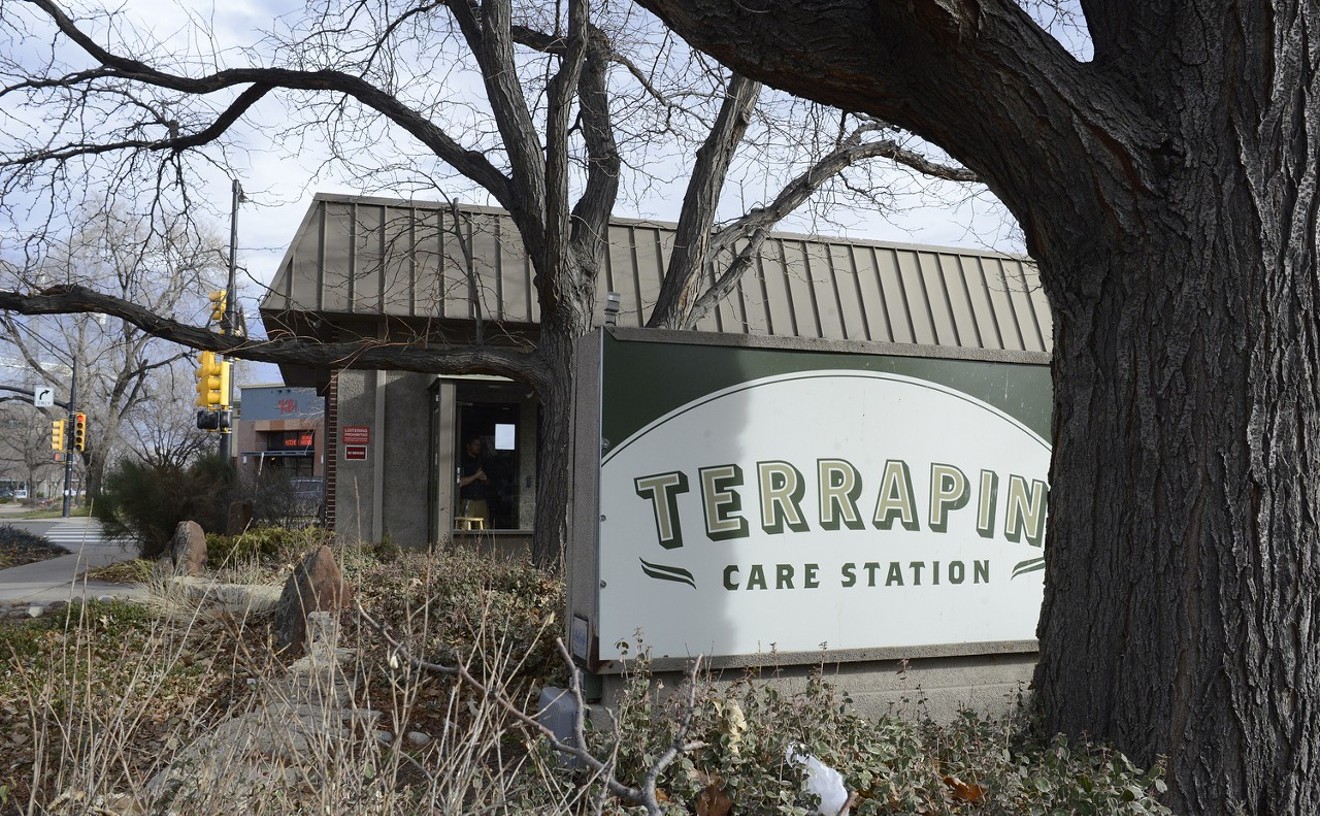On May 26, Governor John Hickenlooper signed the bill finalizing Colorado's budget for 2017-18. Last year, the legalized marijuana industry brought in $200 million in taxes, and this budget gives us an idea of where that money is going.
The $200 million was generated from three tax revenue streams. The first was the 2.9 percent local tax, which contributes to the revenue in the state's General Fund. The other two revenue streams comprise the special retail marijuana taxes: a 10 percent sales tax and the 15 percent excise tax that are both exempt from TABOR and contribute to the Marijuana Tax Cash Fund.
Under a Hickenlooper proposal approved by the Colorado Legislature, $15.3 million will be taken from the Marijuana Tax Cash Fund to provide housing assistance for Colorado's homeless population, as well as individuals with behavioral health needs. "By providing stable housing, which includes rental assistance and supportive services, we expect to reduce incarceration, hospitalization and homelessness for many of Colorado's most vulnerable citizens," the state said in announcing the program.
Mark Bolton, the senior legal deputy counsel to the governor who also manages marijuana issues, says the governor's office is focused on addressing four key issues with the marijuana tax money, and substance-abuse issues are part of that. "To the extent there's going to be increased substance-abuse treatment needed with increased marijuana use, we want to have funds available for those purposes," he says.
There will also be money set aside for K-12 education. When voters passed Amendment 64 in 2012, they did so with the understanding that extra tax money collected would go toward school funding, specifically to aid in school construction and upkeep. That's changing with this budget, though, as the money will now be used to help teachers and other areas of schooling that directly affect students.
The Department of Education will receive money from the Marijuana Tax Cash Fund for the School Health Professionals Grant Program: $9.7 million will go to local school districts, to add 150 health professionals at secondary schools who will provide education, universal screening, referral and care coordination for students with substance-abuse issues or other behavioral needs.
In addition to school funding, preventing youth from using marijuana is a priority for the governor. "We want to be able to use these funds to educate youth on the dangers and risks of marijuana use," Bolton says.
Multiple studies have confirmed that since legalization, youth use of marijuana has not increased in Colorado; some attribute that to increased education. Educational efforts will continue to be supported in this new budget, Bolton notes.
Another area of mental health addressed by the budget involves the criminal-justice system. The Department of Human Services is receiving $7.1 million from the Marijuana Tax Cash Fund to "end the use of jails for holding people who are experiencing a mental-health crisis," notes the governor's office. "These initiatives will help direct individuals with immediate mental-health and substance needs to more appropriate services outside the criminal-justice system."
Bolton says the overall goal is to address public health and public safety issues — but to do so, the state needs to continue improving its regulatory oversight to keep things running smoothly.
To do that, part of the budget will address the unregulated "gray market" and help create the resources needed to prevent medical marijuana from making its way to unregulated markets. Nearly $6 million of the Marijuana Tax Cash Fund will be earmarked for reimbursing local governments for law enforcement efforts associated with fighting the gray and black marijuana markets.
"We have overarching goals that we hope to accomplish with the marijuana tax revenue, like strong regulatory oversight," says Bolton. "We want to have a strong regulatory apparatus to make sure that we're doing this correctly."
[
{
"name": "Air - MediumRectangle - Inline Content - Mobile Display Size",
"component": "12017618",
"insertPoint": "2",
"requiredCountToDisplay": "2"
},{
"name": "Editor Picks",
"component": "17242653",
"insertPoint": "4",
"requiredCountToDisplay": "1"
},{
"name": "Inline Links",
"component": "18838239",
"insertPoint": "8th",
"startingPoint": 8,
"requiredCountToDisplay": "7",
"maxInsertions": 25
},{
"name": "Air - MediumRectangle - Combo - Inline Content",
"component": "17261320",
"insertPoint": "8th",
"startingPoint": 8,
"requiredCountToDisplay": "7",
"maxInsertions": 25
},{
"name": "Inline Links",
"component": "18838239",
"insertPoint": "8th",
"startingPoint": 12,
"requiredCountToDisplay": "11",
"maxInsertions": 25
},{
"name": "Air - Leaderboard Tower - Combo - Inline Content",
"component": "17261321",
"insertPoint": "8th",
"startingPoint": 12,
"requiredCountToDisplay": "11",
"maxInsertions": 25
}
]













